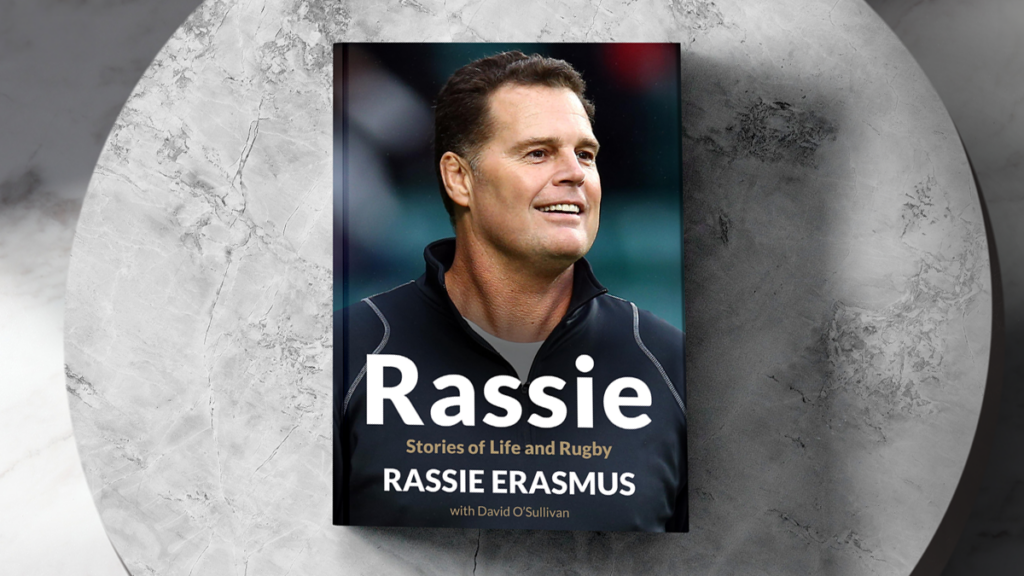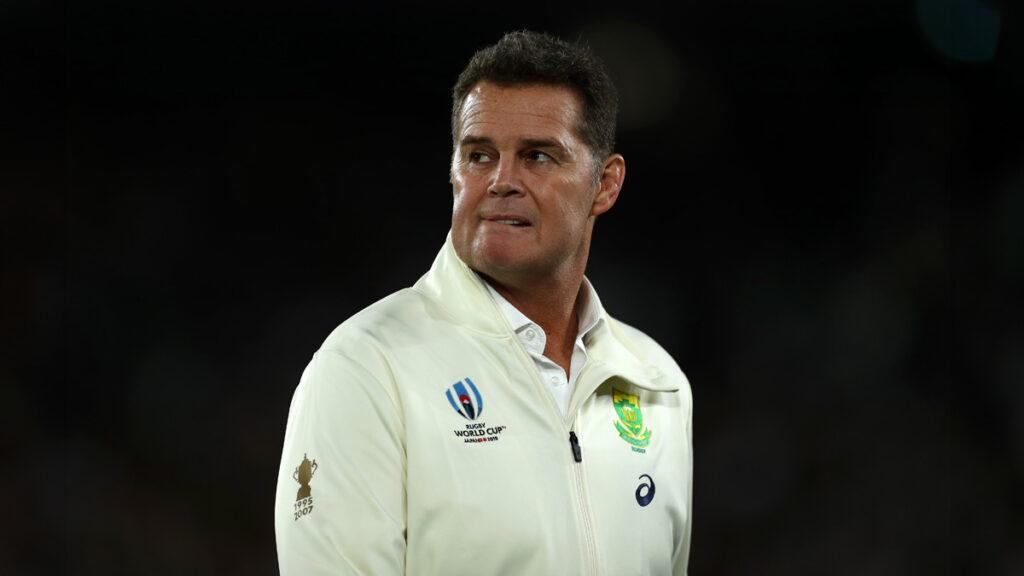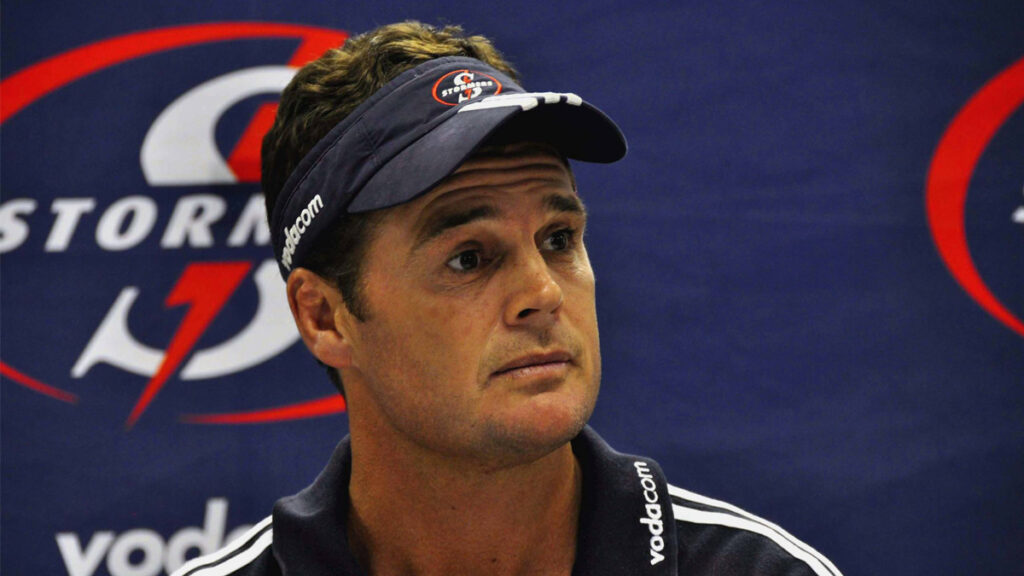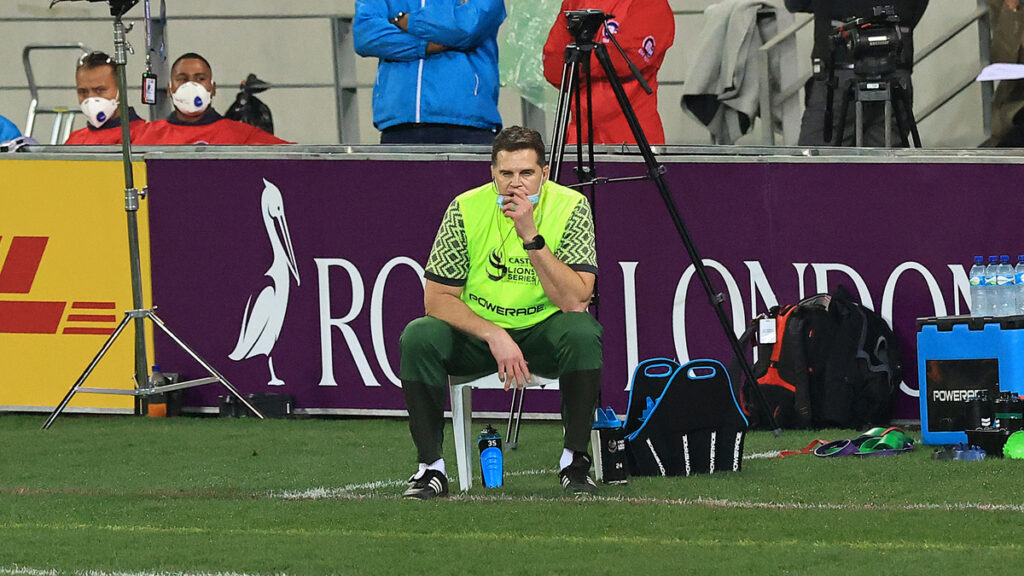Bookshelf: Rassie Erasmus – stories of life and rugby
We’ve scoured the autobiography of Rassie Erasmus for some of the lessons within it that you can apply to your organisation.

Many business leaders are obsessed with the sporting mindset. Communication, dealing with pressure and crisis management are just some of the lessons we can learn from the best in the world sport.
With that in mind, we’ve scoured the much-anticipated autobiography of Rassie Erasmus, the double Rugby World Cup-winning coach of South Africa, for some of the lessons within it that you can apply to your organisation.
The book – Rassie: Stories of Life and Rugby – begins with Erasmus’s early years growing up in the small, working-class town of Dispatch in South Africa’s Eastern Cape and follows him through to his preparations for the 2023 World Cup.
On communication
In the pages before getting the job as head coach of the Springboks in 2018, Erasmus shares stories of his time as a player and explains how they moulded his approach as a coach. One such story talks about a heated dispute with former New Zealand coach Laurie Mains when Erasmus was playing under him for the Golden Lions in 2000.
I take a lot of blame for what happened. I should have had a proper discussion with Laurie about the issues that troubled me, rather than allowing them to simmer and eventually boil over.
But I learnt from the mistakes both of us made. I won’t have players who behave as badly as I did, feeling entitled just because they are playing well. I learnt to have proper communication with the players, to address grievances properly and not allow ill feelings to fester and affect the whole team.
This communication thread continues later in the book. The Springboks are known for breaking the traditional mould of announcing their starting team 72 hours before a test match, instead opting to announce the team on the Monday before a game. This is very deliberate from Erasmus, as he explains:
A coach has to have a proper, open communication system with his players, whatever is going on or decided in the boardroom and at the selection meetings. If the coach isn’t consistently giving the players information, then all they get are rumours and misinformation through other means, like social media.
I’ve had situations where we’ve had a team talk in the morning, a player leaves full of confidence, and the next day he comes back a broken man because of the things his friends or parents have told him were said on Twitter. Whatever rumours are going around, they will eventually get to players. Transparency is vital.

On accountability
Erasmus’ system of coaching has been idolised by the rugby world since he won the 2019 World Cup in Japan. Another story he shares in the book focuses on the build-up to the semi-final showdown with Wales. Star winger Cheslin Kolbe had picked up an injury earlier in the tournament and wasn’t able to train on the Monday before the game.
Our team selection protocols were that if a player was unable to train on a Monday, he couldn’t be selected for the game later that week. Cheslin wasn’t available for training on the Monday and so I announced the team for the semi-final with Sbu Nkosi in his place.
But by Thursday, Cheslin was back to full fitness, stepping us all over the place. I asked him if he was ready for Wales. He looked at me in surprise, almost angry. He didn’t say anything, but I could tell by his expression that he was challenging me for even thinking of breaking my own team selection protocols.
I went to Stokke (our nickname for assistant coach Mzwandile Stick) and Jacques [Nienaber, then-defence coach] to get their views. They confirmed that Cheslin looked in great form but pointed out he had been ruled out on Monday. I argued that he was ready, but Stokke was adamant: ‘No, Rassie, you can’t pick him now.’
This is why you must have people around you who believe in your methods, so when you break your own rules, they will correct you. Stokke said to me: ‘Is jy mal? [Are you mad?] You’re going to lose the whole team if you pick Cheslin now and we get into the final.’

On conviction
How many times as a leader have you succumbed to external pressure when making a decision? No doubt you’ll make mistakes, but you know what’s best for your business. Erasmus touches on this when talking about his tenure in charge of the Stormers, a Western Cape-based rugby union franchise, in 2007.
I got a big wake-up call at the Stormers. I found out that it’s not just how you coach, it’s how you pick a team and how you get that team to believe in itself. The moment you start listening to people outside the team and trying to please them, you’re going to lose the team and you’re going to lose on the scoreboard – and you’ll get fired.
If I hadn’t experienced that level of interference, I think I would have made big mistakes in my Springbok team selections where the pressure is 10 times worse. Not that I haven’t made mistakes as Bok coach, but I learnt to deal with things differently.
Erasmus provides several examples of this need to have conviction, but one standout moment was what became known as ‘video-gate’. During the 2021 British & Irish Lions Covid-affected tour of South Africa, a 62-minute video was leaked of Erasmus hitting out at the officiating in the first test match.
He vehemently denied that he leaked the video to the public and stressed that rugby’s governing body, World Rugby, and its head of match officials Joël Jutge were the target audience. He reflects on the ordeal after the Springboks won the second test.

I had so much pent-up emotion that I lay down and cried with relief. We hadn’t won the series yet, but I had stuck my neck out such a long way and was really feeling the intense scrutiny. Someone had leaked the video and now I was being called a sore loser, unprofessional, pathetic, a terrible sportsman – every insult you could think of. I was being asked, ‘Is that how you want your kids to look at you? Is that what you teach your players?’
The thing that hurt most was that people thought I could be so sharp in the way I played and coached rugby but so stupid in life, damaging my career and the Springbok name by leaking a video. It was so insulting. How stupid do you have to be to send a video to the referees, get the feedback you wanted and then anger those same referees by leaking it anyway and making the world hate you?
The stress had been unbelievable and I had a lot of self-doubt. I wasn’t sure if I had done the right thing in making the video in the first place. On reflection, I would probably still make the video.
If you want to achieve something you’ve never achieved before, you have to do something you’ve never done before. I wanted to catch the attention of Jutge and World Rugby. I achieved that, receiving a reply from Jutge in which he agreed with our comments.
Erasmus’s book is packed with insights, honesty and the lessons he’s learnt along the way. I’d highly recommend it to anyone, regardless of your level of love for rugby union.



